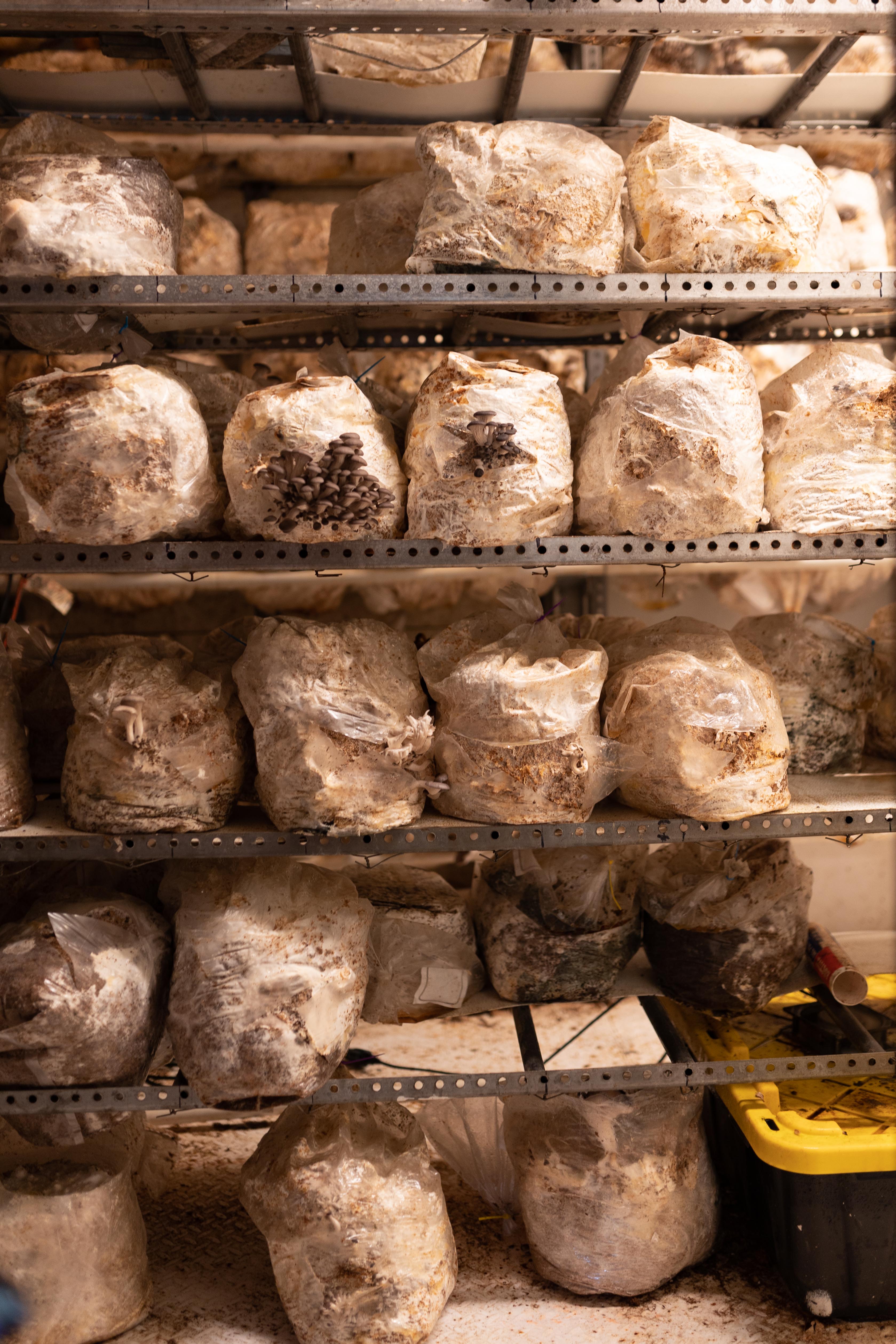“I started about two months before COVID-19 became a really big thing,” Sanness says. “I lost my job, which ended up being a blessing in disguise because now I had all the time in the world to work on this venture.”
Each step of the growing process has its own unique space on the farm, built by Sanness with help from his family and friends. It starts with a mixture called the substrate, made of sawdust and soybean hulls. The mixture – held in a plastic bag – is hydrated with water before being sterilized and placed in the lab, where filtered air runs to ensure cleanliness. Once sterilized, the bags are opened for 10 seconds as mushroom spawn are added. Then, the bags are resealed and sent to the incubation room for about a month. The process ends at a huge, chrome semi-trailer fitted with an HVAC system. The trailer fluctuates the humidity inside between 85% and 95%, and it’s where the mushrooms fruit from their bags and are harvested.
“Mushrooms breathe just like humans do,” Sanness says. “They breathe in oxygen and give out carbon dioxide. I have to keep fresh air exchanging; otherwise, they would basically suffocate. The nice part about this space is you can go vertical with it, not just horizontally, which I think is fun.”
Flavor for everyone
There’s a lot more to fungi than the run-of-the-mill button mushrooms, Sanness says. There are thousands of edible species, which means there’s a mushroom for everyone.
“There’s a bunch of different varieties, and we just don’t eat a lot of them,” Sanness says. “Each one has a different flavor, texture, medicinal benefit and health benefit.”
